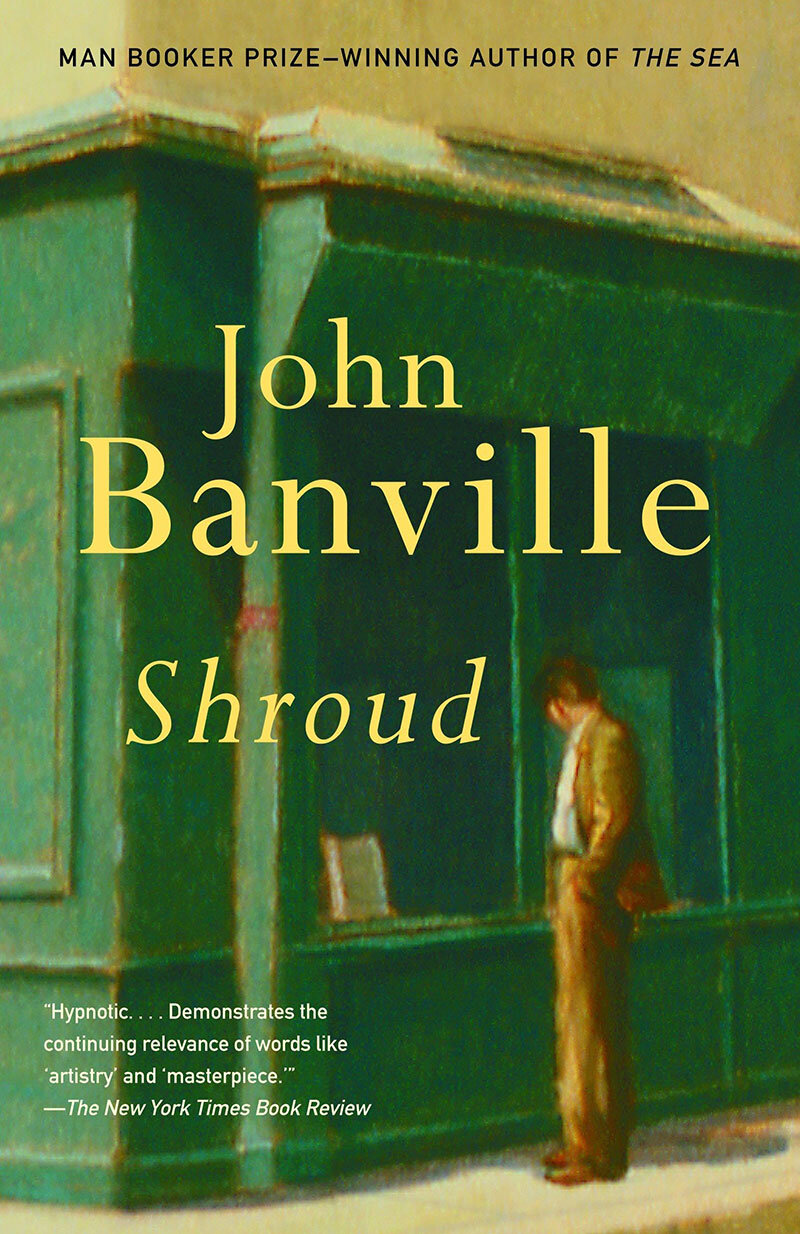“Shroud” by John Banville
Shroud
By John Banville
2002
272 pages
Fiction
—
How about a novel built around the founder of deconstructive literary criticism? It’s hard to imagine a more exciting premise than that. Deconstruction is the worst nightmare of most readers, because nothing seems to mean what it says. Who wants to read a novel about a man who spent his life telling us that texts didn’t really mean what they say? Ah, but let me convince you – not about deconstruction, but about the novel.
But first I must take you back to the real-life case of Paul de Man, one of the founders of deconstruction and a Yale professor who died in 1983. He held an almost cult-like guru status in humanity departments in universities around the world. But a few years later it came out that, as a much younger man in Nazi occupied Belgium, he had written anti-Semitic articles for a collaborationist newspaper.
Is our hero hopelessly tarnished? Hardly. His acolytes, using the methods de Man had charted, claimed that his apparent racism was actually its opposite. These texts didn’t really mean what they appeared to say. They actually meant just the opposite. This all led David Lehman to say, “The briefs for de Man provided a dossier of proof that deconstruction is not a value-free science but a program that promotes a reckless disregard for the truth and a propensity for hero worship.” Yikes.
Now to the novel. Shroud is based on the de Man case but is clearly a work of fiction and departs in significant ways from the real-life events. If you are not familiar with Banville, he won the Man Booker Prize for another novel and writes excellent, clever, morally ambiguous detective stories under the name Benjamin Black.
He also has one of the more astounding vocabularies of any contemporary novelist I have read. I’ve occasionally pointed out to my students that Edgar Allen Poe, one of the authors they think they like because he writes weird and haunting short stories, also has an incredible vocabulary. If you make a list of all the words you don’t know or haven’t seen before in a story, you begin to appreciate how many words he knows and can actually use. Ditto with Banville, who from time to time had me scrambling for a dictionary to see if I actually knew what a word meant. I know not every reader will love that, but I think it’s a lot of fun and I don’t get the impression he is just showing off.
Axel Vander, the antihero of Shroud, has a past that has caught up with him. There’s just one problem. Axel Vander is not Axel Vander. Confused? Good. Maybe that will get you to read the book. You are not going to like Axel Vander (at least I hope not), but Banville has a great feel for moral ambiguity and the complexities of being human. In addition, he is such a brilliant stylist, making use of such beautiful language that he deserves to be given a read. As I often say in these reviews, this book is not for everybody (few books are), but it is a first-rate novel about truth and lies in stunning prose.








